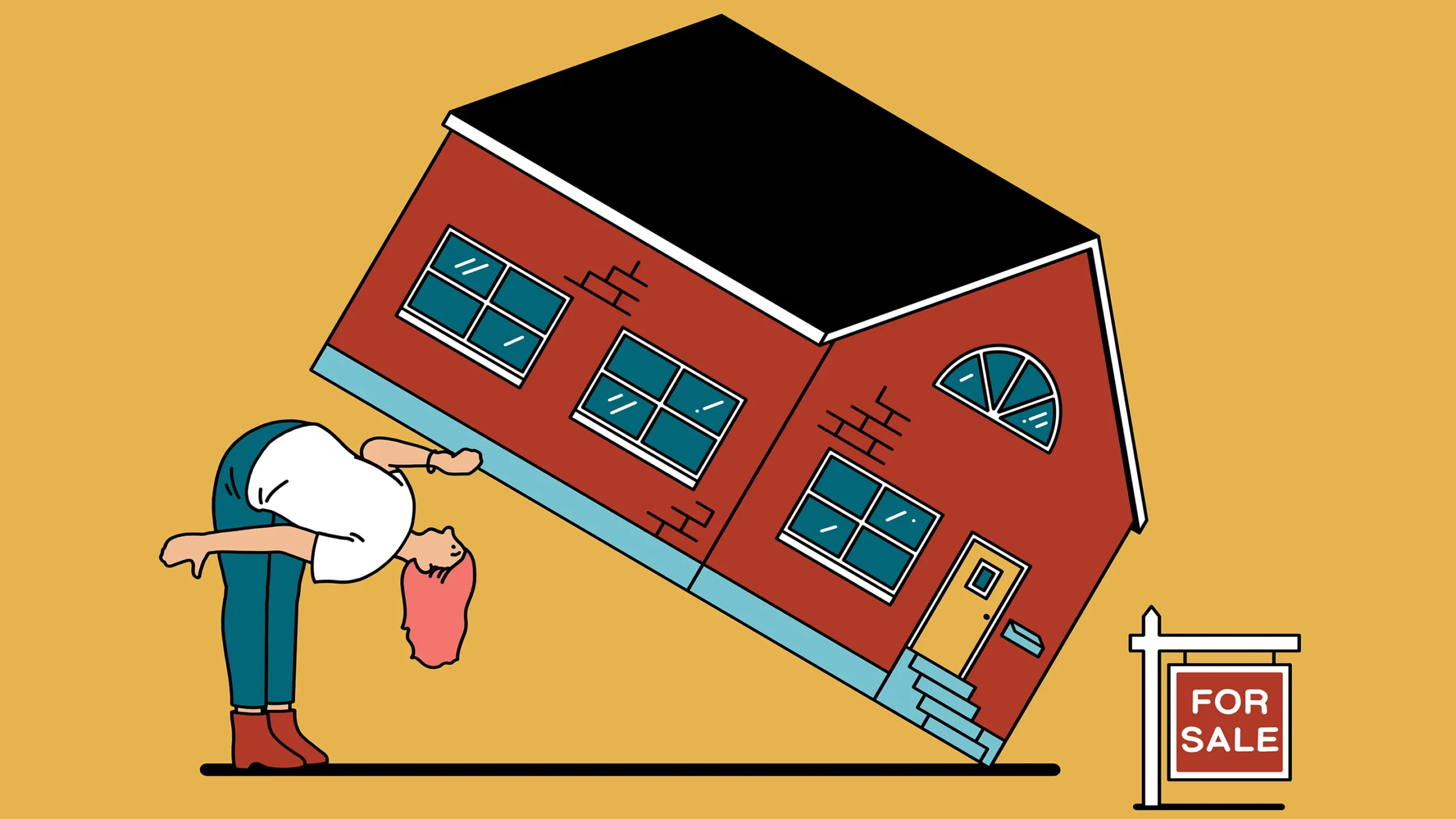The global economy is a vast and interconnected system, where economic shifts in one region can send ripples across the world. In recent years, one of the most notable sources of global economic uncertainty has been the escalating trade tensions between the United States and the European Union (EU). These tensions, often referred to as the US-EU trade war, have profound implications for various sectors, including the housing market. A recent report has warned that demand for homes in Ireland may weaken as a result of the ongoing trade dispute between these two economic giants. This article explores the possible consequences of the US-EU trade war on Ireland’s housing market, analyzing key factors contributing to this potential downturn.
The US-EU Trade War: An Overview
The US-EU trade war has been a significant feature of global trade dynamics over the past few years. The roots of the conflict lie in disputes over tariffs, subsidies, and market access. A major source of contention between the US and the EU has been the aircraft manufacturing sector, with the US accusing the EU of unfair subsidies to Airbus, while the EU has lodged similar complaints against Boeing, the American aerospace giant. This led both parties to impose tariffs on each other’s goods, ranging from steel and aluminum to luxury goods, including wine, whiskey, and agricultural products.
The trade war reached its peak in 2020, when the World Trade Organization (WTO) ruled in favor of both parties in separate cases, allowing the US and the EU to impose tariffs on each other’s exports. The Trump administration, followed by the Biden administration, has continued to exert pressure on the EU in a bid to protect American manufacturing interests. These trade disputes are not isolated incidents but form part of a broader strategy by both regions to secure economic dominance in a rapidly changing global landscape.
Ireland’s Economic Vulnerability
Ireland, as a member of the European Union, finds itself squarely in the midst of this trade dispute. While Ireland has benefitted from its EU membership, particularly in terms of trade access and foreign direct investment, it remains vulnerable to the fallout of a US-EU trade war. Ireland’s economy is deeply integrated with both the US and the EU, and its trade and investment links with these regions are crucial. The US is Ireland’s largest trading partner, with billions of dollars in exports flowing between the two countries every year. On the other hand, Ireland benefits from access to the EU single market, which has allowed it to position itself as a gateway for trade between Europe and the rest of the world.
However, these economic relationships also make Ireland susceptible to disruptions in US-EU trade relations. A slowdown in trade between the US and the EU could affect Irish exports, particularly in sectors like pharmaceuticals, chemicals, and technology, which are among the country’s primary industries. Furthermore, Ireland is heavily reliant on foreign investment from multinational corporations, many of which are US-based. A trade war could lead to shifts in corporate strategies, potentially reducing investments in Ireland or prompting companies to relocate operations to other regions.
Impact on the Irish Housing Market
The Irish housing market, like any other, is influenced by a complex mix of domestic and international factors. Economic stability, employment rates, and interest rates are among the key drivers of demand for homes. However, the impact of global trade wars can also play a critical role in shaping the housing market. According to the recent report, the ongoing US-EU trade war may lead to a slowdown in the demand for homes in Ireland. Several factors contribute to this prediction.
1. Economic Uncertainty and Reduced Consumer Confidence
One of the primary consequences of a trade war is the uncertainty it generates in global markets. When large economies like the US and the EU are engaged in a trade dispute, it creates volatility that can ripple across other markets, including the housing market. The report suggests that economic uncertainty can erode consumer confidence, making individuals and families hesitant to make significant financial commitments, such as purchasing a home.
In Ireland, potential homebuyers are already facing high housing prices, particularly in Dublin and other urban areas, which has made it difficult for many people to afford to buy homes. A slowdown in economic activity due to the US-EU trade war could exacerbate this situation. When consumers are uncertain about their job security or the overall economic outlook, they may be less inclined to take on large amounts of debt to buy a home. As a result, demand for homes could soften, leading to slower growth in property prices.
2. Reduced Foreign Investment and Job Losses
Another key aspect of Ireland’s vulnerability is its dependence on foreign direct investment (FDI), particularly from US-based multinational corporations. Many of these companies have established their European operations in Ireland, attracted by the country’s favorable tax policies and access to the EU market. However, a trade war could lead to a reduction in FDI as companies re-evaluate their operations in response to the changing global trade landscape.
If US companies decide to scale back their operations in Ireland or shift their investments to other regions, it could result in job losses or reduced hiring in key sectors. The technology, pharmaceutical, and financial services industries, which are some of the largest employers in Ireland, could be particularly affected. A slowdown in employment growth, coupled with the loss of high-paying jobs, could reduce the purchasing power of potential homebuyers, further dampening demand for property.
3. Impact on Mortgage Rates and Financing Costs
In a global economic environment shaped by trade tensions, central banks may adopt more cautious monetary policies. For instance, the European Central Bank (ECB) and the Federal Reserve may choose to lower interest rates to mitigate the negative impact of the trade war on their economies. While lower interest rates can make mortgages more affordable, they can also signal a weak economic environment. The prospect of low rates may not be enough to stimulate home demand if the broader economic outlook is bleak.
Furthermore, potential homebuyers may be concerned about the longer-term stability of their financial situations, especially if the trade war leads to layoffs or economic slowdown. In such cases, even with lower mortgage rates, individuals may hesitate to enter the housing market due to concerns about their future financial security. This caution could further dampen housing demand, leading to a slowdown in the market.
4. Shift in Migration Patterns
Ireland has long been a destination for migrants from both the EU and beyond, particularly the US. Many US citizens have relocated to Ireland, attracted by job opportunities in tech, finance, and other sectors. However, if the US-EU trade war leads to economic instability, it could disrupt these migration patterns. US citizens may be less likely to move to Ireland if they are uncertain about the future of the Irish economy or their employment prospects. Similarly, Irish expatriates living in the US may choose to stay in the US rather than return home, further reducing demand for housing in Ireland.
Conclusion
The ongoing US-EU trade war poses a significant risk to the global economy, and Ireland is not immune to its effects. The country’s housing market, which has been experiencing rapid price growth in recent years, may face a slowdown if the trade dispute continues to escalate. Economic uncertainty, reduced foreign investment, job losses, and changes in migration patterns could all contribute to weaker demand for homes in Ireland. While the exact outcomes remain uncertain, the report serves as a timely reminder of how interconnected the global economy is and how events far beyond Ireland’s borders can have a profound impact on its housing market. Policymakers, businesses, and homeowners alike will need to closely monitor developments in the US-EU trade war and prepare for potential challenges in the housing market in the coming years.



